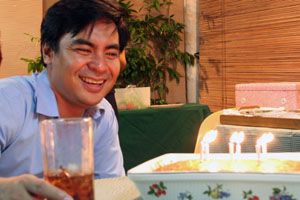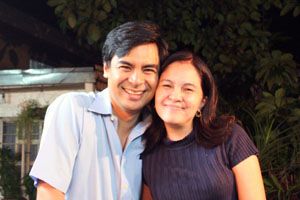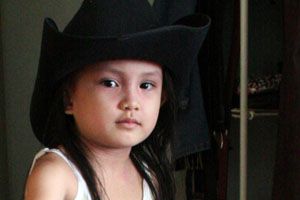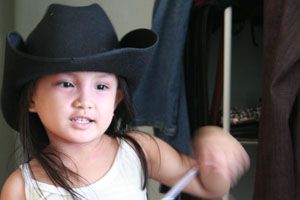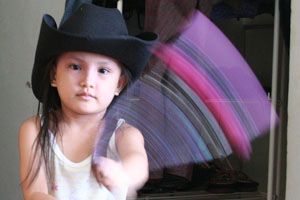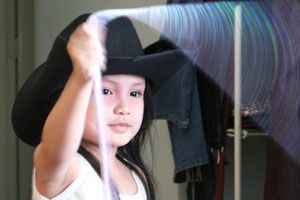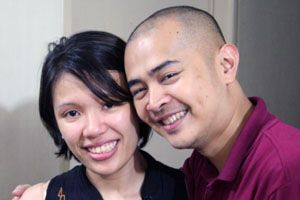Into the MorningBy
Dean Francis AlfarA Language for TwoMy earliest recollection of my dam is when I was two, as she prepared to go to another canopy: her face made up in meticulously, abdomen primly dotted, her hair swept up in an exaggerated wave that was meant to look accidental, her coordinated ensemble of beige and tan skins exuding unhurried elegance.
I began to understand my dam’s silent language around then. I could pierce the meaning behind her actions: the flicker of pursed lips, the quickening of an iris, the wiping of invisible sweat from under her dry spinnerets, the deliberately misused hiss, the subtle variations of tongue clicks, the underlying color theory of her selected cosmetics.
I knew my dam more than anyone, more than any of my nest-siblings, and definitely more than my sire.
A Moment at FourMy dam loved to weave. When my sire was away in the late afternoons, she’d sit in her favorite spot in the hollows, and hum as she spun the silk from her spinnerets. She’d shape strands into patterns that first caught the last colors of dusk, before transforming what she held into something marvelously ordinary – a blanket, a sheet, a dining cloth.
I remember when I was four, coming across her spinning, dappled in the fading sunlight. My nest-siblings were far behind me, and for a pure and perfect moment, my dam and I were alone. She looked up at me, her eyes reflecting orange and red and gold, and held out the web in her hands.
In that action, I caught the unspoken words: how she moved her shoulders, the motion of hair on her soft abdomen, the softness of light.
And of course what she held up for me to see.
To me, it looked like a star.
To me, it said love.
Sick at SixWhen I six I found a small moth on an old web, high up in the tree where we lived. It was noon and I was supposed to be with all the others, learning the things that defined who we were: the qualities of stillness, silence and surprise. Even then, I was easily bored and escaped when I could. That time I went up to a place I’d never been, thinking to see the sky.
The web strands were old and smelled unfamiliar, woven by someone in days long gone, and suspended in the weave was the moth, wings almost transparent, limned with dust. At that moment I felt hunger and moved towards the trapped creature, recoiling first at the almost complete absence of scent.
I ate it, beginning with the head, brittle in my mouth, spilling pieces downwards; then the body, hollow and tasteless; then the wings, flavored with dust.
By the time I returned home I was violently ill. My dam was beside herself with worry, though she did not speak, busying herself with actions that would cure me, including the most tender caresses that made all the pain worthwhile.
When my sire came home, he saw us together and told my dam to leave me and attend to other things. My illness, he said, was common and would pass. It was not worth all the attention.
Without a word, my dam rose and did what he said, dragging a leg as she moved away from me.
First at EightI always suspected that, like me, my dam hated going to crèche reunions. I’d only been to them twice before, both times on my sire’s side because my dam’s family was thin-blooded and dispersed across several canopies. The first time was just before my eighth birthday. I remember my sire telling me how wonderful it would be for me to finally meet family members who hadn’t seen me since I was hatched. But when we arrived, I was overwhelmed by the cacophony of strangers, numbed by the countless embraces and tongues and pinches and unfair questions (“Don’t you remember me? I tasted you when you were born.”), and terrified by the way I was expected to experience familial love at first sight.
By the time the main meal was served, I could not be found anywhere. Hours later, one of the hunting parties led by my disheveled dam found me curled up among the weeping aphids, semi-conscious and dehydrated. My sire was furious. My dam did not scold me then, and I thought there would be a devastating tempest later, in private.
It never happened.
We spiraled down the webs together, clasping hands all the way home.
Second at TenMy sire exacted a promise from me to behave before we left for the second reunion when I was ten. I agreed and followed quietly up the webs, already itching in my black skin funeral attire. I did not want to upset him, who was mourning his own sire’s loss heavily. My dam and all my nest-siblings gave him wide berth, and the long trip was conducted in arduous silence. I remember wishing that day and night would pass quickly but my desire seemed to only prolong the journey. My dam just looked blankly ahead as she moved, her legs and arms gaining purchase on the fine silk that marked our pathways.
When we arrived, I was shocked to discover a range of exhibited emotions, ranging from caterwauling to raucous feasting headed by some of my sire's nest-siblings. There was a reprise of the painful greetings and impossible questions that I somehow managed to endure, drawing strength from my stoic dam’s firm smile. But when I realized that I was expected to taste my dead grandsire, I reneged on my vow to behave and promptly fainted. I came to in her dam’s arms and listened with my eyes closed to a thousand invasive questions and fragments of unsolicited advice from the others who had seen me collapse. I tried to apologize to my parents, but ended up crying instead, tears that were interpreted by many as genuine grief.
On the way back, one of my nest-siblings arched backwards, stuck her tongue out at me and said something hurtful,which did not surprise me in the least. She had a foul mouth and was just a hatchling, after all. I chose not to tell my dam about it and instead turned away from my sister and focused on strands that led home.
Last at TwelveOn the silken path high in the branches of a dead tree again to reunite for some unknown relative’s homecoming, just days before my twelfth birthday, the last thing I expected was for my dam to speak up.
“I’d really rather not go,” my dam clicked, the suddenness breaking the immaculate silence with the force of thunder.
“We agreed to go,” my sire said.
“We can turn back,” my dam replied. “Or we can go somewhere else.”
“We’re expected.,” my sire hissed. “We told them we’re coming. What sort of dim thing is this?”
“Don’t call me dim.”
“Don’t act dim,” my sire clicked, jumping on the web, forcing all of us to race to catch up or suffer a tremendous fall.
I listened to entire exchange with a sick feeling in my stomach, as if my pre-dawn breakfast had turned to stone.
“Stop moving,” my dam said, in almost a whisper. “Please stop.”
I watched my dam’s face. It looked to me as if her eyelashes were burdened by the enforced curls of the macopa extract she favored. Her abdomen exhibited a smudge of cosmetic. Several strands of the hair that framed her face were conspicuously out of place. Her secret language surfaced and receded on her face.
“No,” my sire said, continuing his motion in the early morning gloom.
“Let me go,” my dam said quietly. I saw the darkness that thrummed beneath her request and tasted the bitterness that circulated in the air. I wanted to tell my sire to stop jolting the web but could not speak.
“No,” my sire hissed.
My dam and I exchanged an accidental look. In that instant I felt the weight of her fatigue and drowned in its depth and immensity. Floating on the dark current was a dam’s doomed love for her offspring, condemned by choice and circumstance to be swallowed by the greater force of sorrow.
Goodbye, I spoke in our secret language.
Goodbye, my dam’s dead face replied.
Without a word, she released her grip on the silken fibers and fell into the morning.
